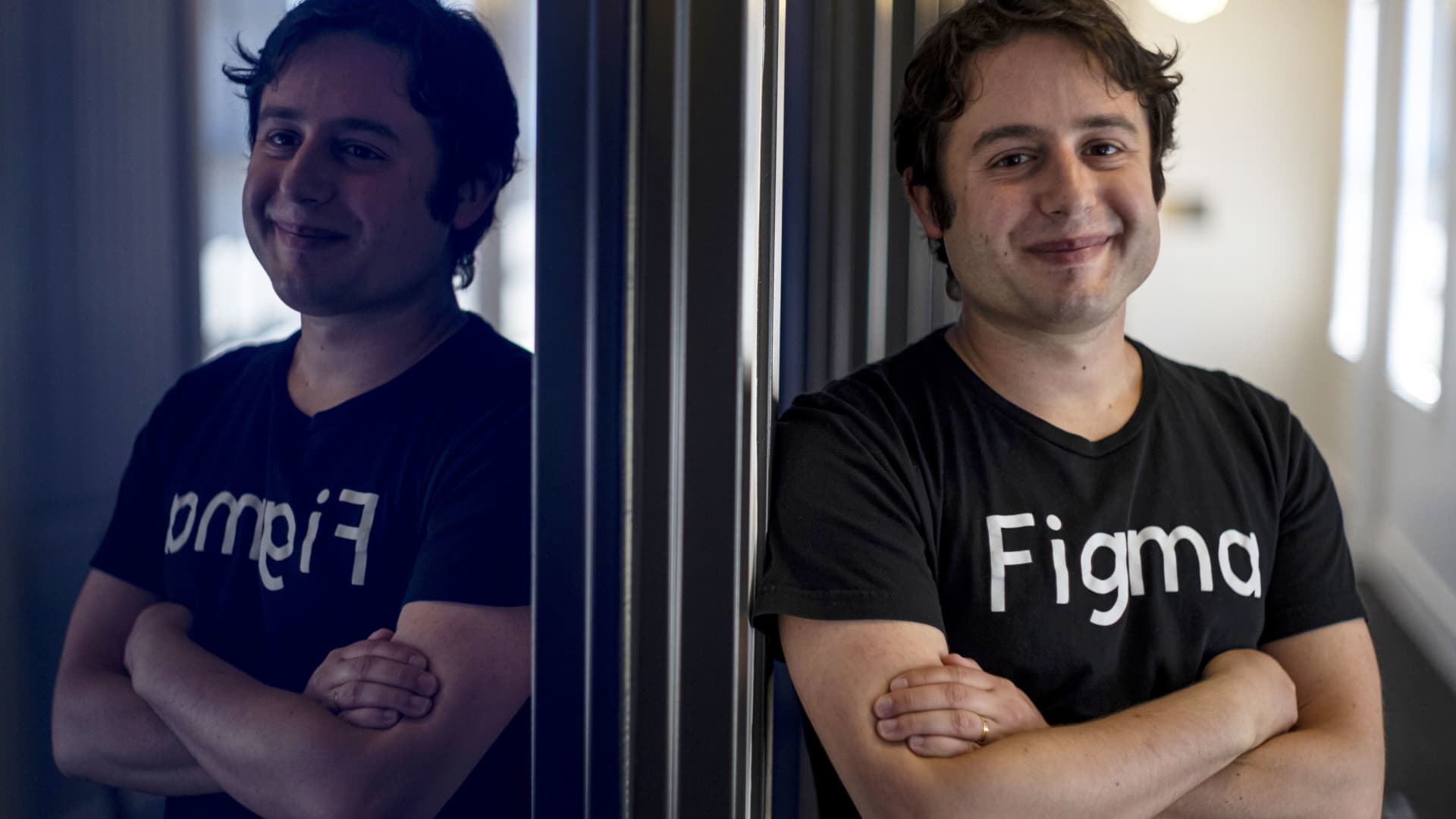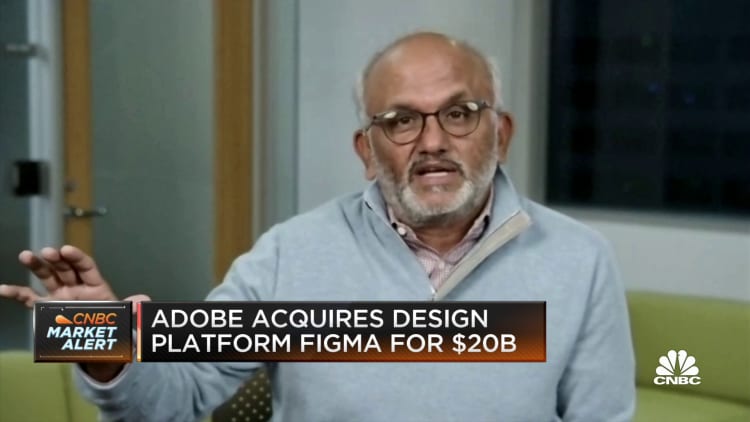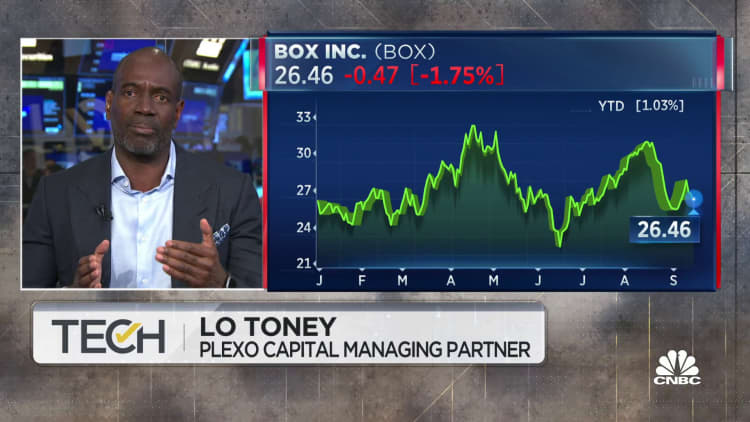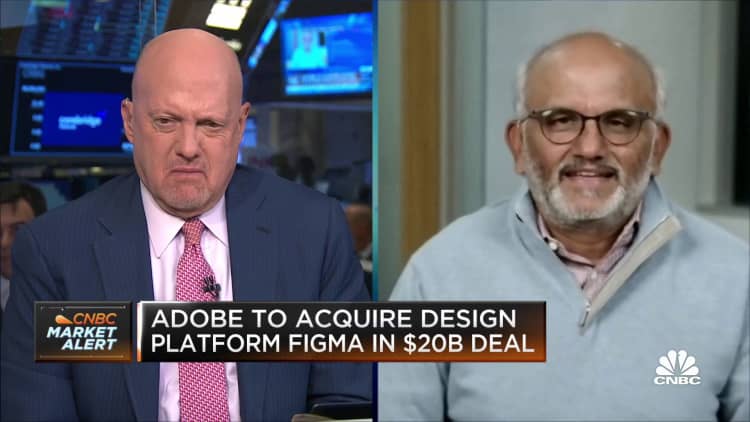


Given the plunge in cloud stocks, late-stage companies have steered cleared of the IPO market — and private financings in a lot of cases — to avoid taking a haircut on their lofty valuations. Tomasz Tunguz of Redpoint Ventures wrote in a blog post on Thursday that prior to this deal, "U.S. venture-backed software M&A was tracking to its worst year since 2017." In such an environment, Figma's ability to exit at double its price from 15 months ago is a coup for early investors. The three venture firms that led Figma's earliest rounds — Index Ventures, Greylock Partners and Kleiner Perkins — all own percentage stakes in the double-digits, people familiar with the matter said. That means they'll each return over $1 billion. Investors in the 2021 round doubled their money. They include Durable Capital Partners and Morgan Stanley's Counterpoint. While those sorts of numbers were routinely recorded during the record IPO years of 2020 and 2021, they're foreign this year, as investors reckon with surging inflation, rising interest rates and geopolitical unrest.
Too young to drink
Danny Rimer, a partner at Index Ventures and Figma board member, said the company was in position to get ready for an IPO and was in no hurry to tap the capital markets, either private or public. "We had raised a lot of money at very good valuations and didn't need to raise any more money," said Rimer, whose firm first invested in Figma in 2013. "The company was IPO-able. This really was more a question of what is the best way to achieve the goal of company, which is to democratize tools for design and creation across the globe."
Dylan Field, co-founder and chief executive officer of Figma Inc., in San Francisco, California, U.S., on Thursday, June 24, 2021. David Paul Morris | Bloomberg | Getty Images
Rimer said Figma has gone through quite a journey since he first met founder and CEO Dylan Field, who had dropped out of college to start the company as part of the Thiel Fellowship program, in which the tech billionaire Peter Thiel offered promising entrepreneurs $100,000 grants. When they met, Field was only 19. "I took him to dinner and couldn't buy him a drink," Rimer said. For Adobe, Figma marks the company's biggest acquisition in its 40-year history by a wide margin. Its largest prior deal came in 2018, when Adobe acquired marketing software vendor Marketo for $4.75 billion. Before that, the biggest was Macromedia for $3.4 billion in 2005. Adobe CEO Shantanu Narayen explained his company's rationale on CNBC, as his company's stock ticker on the screen flashed bright red. "Figma is actually one of these rare companies that has achieved incredible escape velocity," said Narayen, Adobe's CEO since 2007. "They have a fabulous product that appeals to millions of people, they have escape velocity as it relates to their financial performance and a profitable company, which is very rare, as you know, in software-as-a-service companies." Adobe needs the growth and new user base from Figma to maintain its dominant position in design. For investors, Narayen can only ask them to play the long game. "It is going to be a great value for their shareholders," Narayen said regarding Figma, "as well as Adobe's shareholders." — CNBC's Jordan Novet contributed to this report

. by [author_name]
https://www.globalcourant.com/figma-investors-score-historic-coup-with-adobe-deal-in-down-year/?feed_id=23104&_unique_id=6323fc1dd03a8